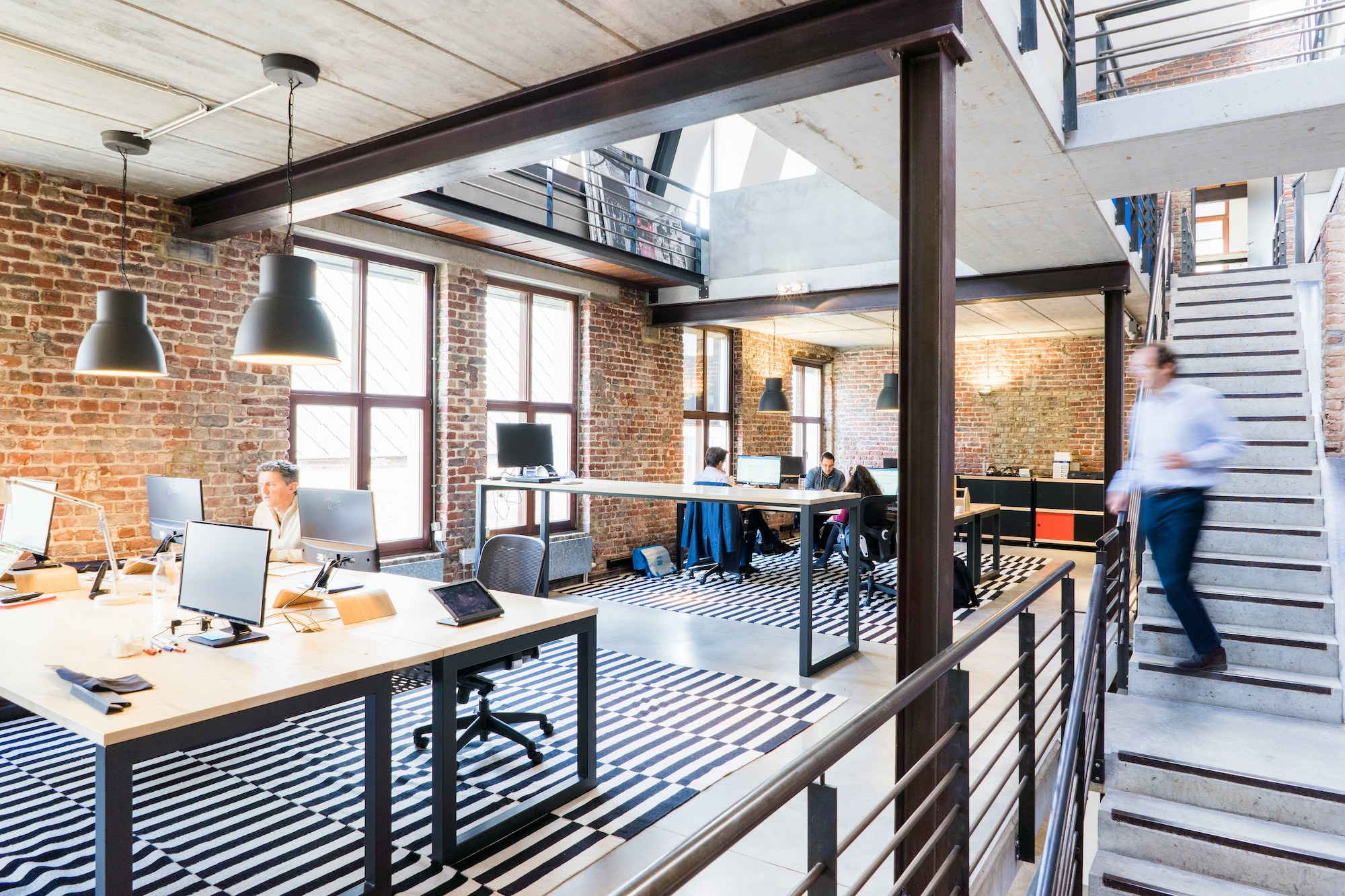The economic cost of lost productivity as a result of suboptimal mental health is substantial. As a result, businesses are increasingly implementing strategies to reduce risks of mental health issues within their organisations. Whilst safeguarding employee welfare and resilience is nothing new, a possibly surprising outcome of recent lockdowns is a fresh perspective on the true value and importance of the physical workplace as an essential component of maintaining good mental health.
Inevitably, the future of work will look different and the role of the office is going through seismic transformation. The great benefits of home working have been empowering but there are also some costs in terms of wellbeing too. A degree of 'hybrid-working’ is undoubtedly going be the post-pandemic norm.
So, as the rollout of vaccines heralds the beginning of the end of the pandemic, we must ask: what have we learnt about the role of the office in regard to our wellbeing?
The benefits and convenience of home working are clear, for many it offers greater independence and control, not to mention time and money saved without the daily commute. However, three key themes have emerged from our dialogue with clients and experts in the field which are: 1) social capital, 2) professional identity, and perhaps most importantly 3) the establishment of clear boundaries between different aspects of our lives, which helps us to maintain a healthy balance.
There now exists a great opportunity for businesses to recognise these factors and harness the office’s full potential for contributing to better mental health and compliment the work from home potential that has emerged.
Social Capital, Collaboration & Learning
The pandemic and subsequent work-from-home boom have increased our reliance on digital communication which for some has led to elevated anxiety and paranoia at work.
Social capital – as defined by the OECD as “networks together with shared norms, values and understandings that facilitate co-operation within or among groups” – is considered a key factor in galvanising groups of people and managing individual insecurities. Our mental health can suffer when working in organisations where people are unable to function together as a whole through trust, shared identity, and positive mutual relationships.
The office is the context and catalyst for developing key components of social capital, giving organisations their unique culture. When that catalyst is removed, the social capital that has been built up starts to erode. The office provides a shared destination to build relationships, knowledge and crucially, trust. These traits, along with effective management and a shared sense of purpose, have often been cited as the key reasons why some organisations have been more adaptable to enforced remote working than others, but their longevity must not be taken for granted. Without access to a physical office many employees have developed an increasingly ambiguous relationship with their companies, colleagues and clients.
Offering a physical workplace that inspires and attracts staff to proactively attend and invest in relationships and maintain social capital will ultimately result in a more resilient, energised and productive workforce. In turn, this will better enable constructive periods of remote working which will be the norm in future, as hybrid working practices become commonplace.
Alan Jope, Chief Executive of consumer goods group Unilever, has suggested that his staff will never return to the office five days a week, stating “that seems very old-fashioned now”. However, Jope also notes the importance of the office as part of a hybrid model since witnessing a “slow erosion of social capital” throughout the pandemic.
Financial software platform Currencycloud announced amongst a raft of pandemic initiatives that its offices in prime locations such as London, New York and Amsterdam will be refurbished to focus on relationship-building and collaboration as opposed to siloed traditional office working.
Learning, both formally and informally, is also necessary for maintaining professional standards, instilling confidence in staff and enhancing social capital. A major concern for professional services and advisory businesses throughout the lockdowns has been the inability to deliver ‘learning by osmosis’. Informal on-the-job learning happens in all office environments at all levels of seniority, but it is particularly important for the development of younger members of the team. Without it we lose the collective sense of support which can gradually erode confidence and lead to undue levels of anxiety or paranoia when completing tasks. What might have been a relatively straightforward task when carried out in the office environment – with immediate support and recognition on hand – may now be a cause for greater concern and potentially a missed learning opportunity.
In his book Time to Breathe, clinical psychologist Dr Bill Mitchell explains that both the giving and receiving of support is actually a key element of professional success. Analysing one piece of research published in the Harvard Business Review, Dr Mitchell notes: “Those participants who helped others cope with work demands and generally put themselves out for others were 10 times more likely to be engaged, and 40 per cent more likely to be promoted than those who were less involved with others.” The opportunity to give and receive spontaneous and immediate support is enhanced in a shared physical space.
If I’m giving a client a complicated piece of advice or pitching a new idea, whilst in the office I would often instinctively bounce it off a colleague first. That takes seconds in the office, but if you’re sitting at home, you don’t have that same ease of unscheduled interaction. You cannot then rely on the sense of shared responsibility and collective goals.
- Mike Voller, Director at Spring 4
Professional Identity
Much has been written about the ‘WFH wardrobe’ in recent months. On a Zoom call who knows what is being worn from the waist down? Whilst amusing, it reveals a truth that prolonged home working can undermine our professional identity. Expression and individuality are celebrated and encouraged in business, but many clients and employees are attracted to companies by their strong, enduring brands and consistent identity.
For companies who do not have a tangible product, like for example professional advisory firms, lawyers, banks, and insurers, the office building is the physical incarnation of those organisations. A solid building supports a solid corporate identity. We have tended to think of this in terms of a client’s confidence in a company, but that tangible presence also greatly contributes to an employee’s ability to solidify their own professional identity. Younger members of a team, trying to progress their careers and establish their professional ‘self’, will typically find it easier to establish necessary professional confidence within a professional setting as opposed to their bedroom, loft or shared kitchen table.
Compartmentalising aspects of our lives can help with retaining control and maintaining balance, for example creating a clear boundary between home and work.
Separation of work from home
In the fast-paced corporate world of constant electronic communication many people are exposed to cognitive overload and it is easy to become overwhelmed. Compartmentalising aspects of our lives can help with retaining control and maintaining balance, for example creating a clear boundary between home and work.
The practical and economic benefits to home working are clear – most obviously the time and money saved by not having to commute to work. In addition, many people feel empowered by the flexibility to manage personal and professional tasks across more hours and days of the week. However, for some these benefits are outweighed by the need to be able to leave their work behind as they pass through the security gates and head for home. The key to achieving this balance is maintaining control: the personal ability to decide when you’re working and when you’re not. Curiously, more work-from-home may not always come with more control especially if companies look to dictate which days staff come in and which days they do not or if home workers struggle to establish the necessary boundaries to then ‘switch off’.
True flexibility comes when companies allow their staff to come and go from the office as they see fit, trusting and empowering staff with that level of control. This emerging distinction with people choosing to go to the office rather than enforcing a mandatory 5-day office week opens up exciting opportunities for rethinking what we will value in offices in the future.
Mental gymnasiums where people train, grow, support, motivate, celebrate and develop their businesses together to achieve collective goals.
The office as a mental gymnasium
In future we will undoubtedly see fewer and fewer offices being used for lining people up to process tasks but instead treated more like mental gymnasiums where people train, grow, support, motivate, celebrate and develop their businesses together to achieve collective goals, returning home to carry out deep thought or process-based tasks in relative isolation.
It will be interesting to see over the coming months how the changing perceptions of the office will materialise through organisations’ real estate strategies to support the mental health of those people who occupy the office space.
There are lots of helpful resources available to support mental health at work such as this guide produced by the BUPA Foundation and written in collaboration with Dr. Bill Mitchell. Click here to view.
Written by Mike Voller


















.png)